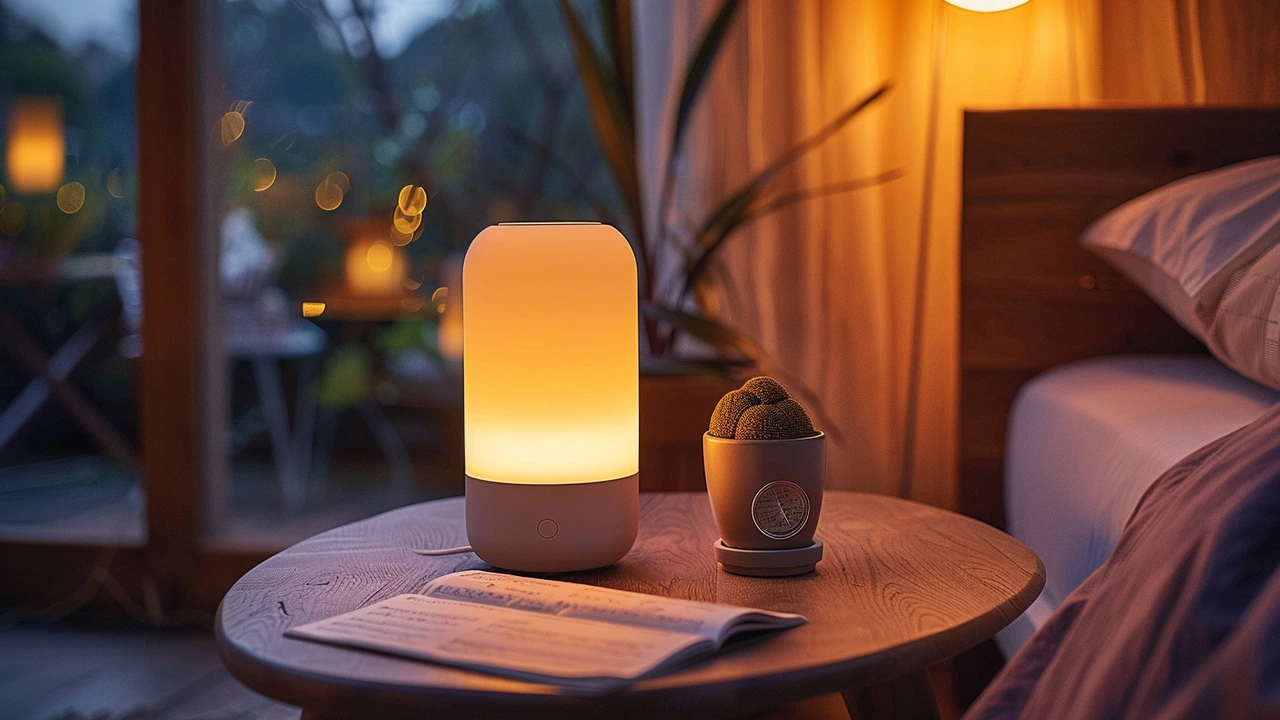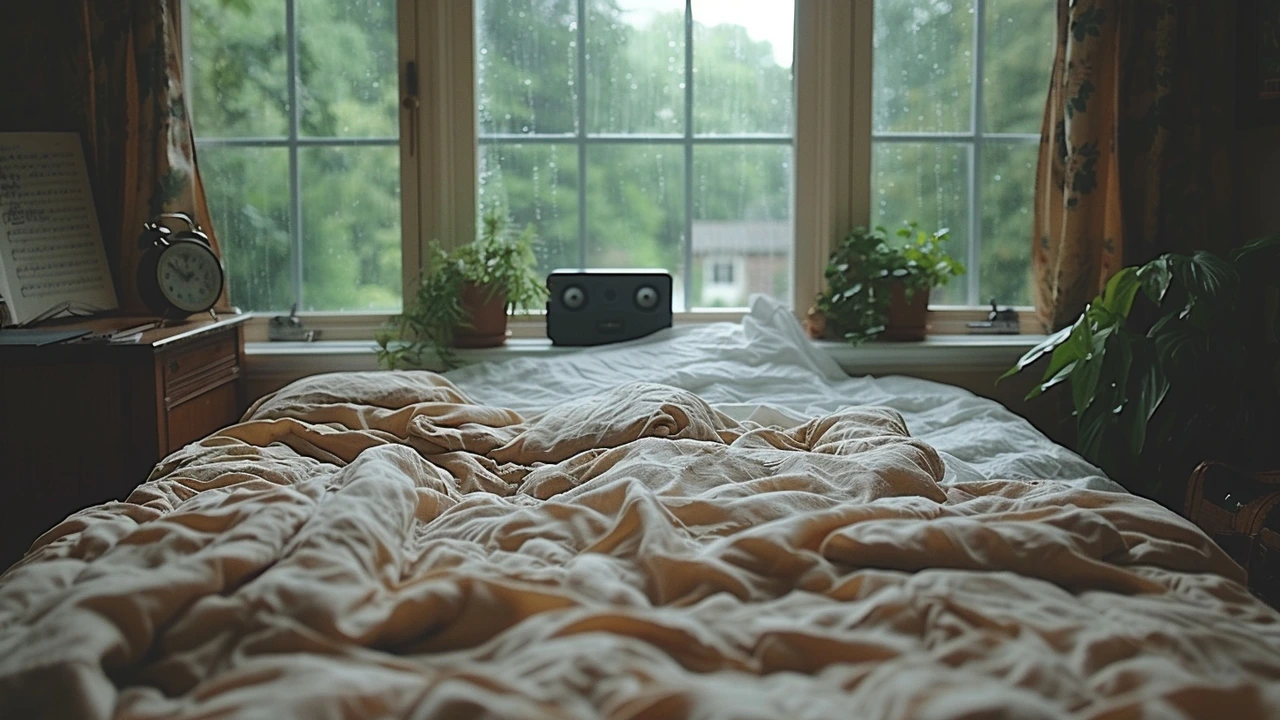When sleep becomes elusive, finding remedies that are both effective and enjoyable can be a game-changer. One such remedy, often overlooked, is classical music. From easing your mind to regulating your heart rate, classical music has been shown to offer a host of benefits that make falling and staying asleep easier.
Our bodies and minds crave rhythm and melody, which classical music provides in spades. The soothing harmonies and gentle tempos of composers like Mozart, Bach, and Beethoven can slow down your heartbeat and create a tranquil atmosphere conducive to sleep. But how exactly does this genre of music affect your sleep quality? And how can you seamlessly incorporate it into your nightly routine? This article explores these questions and more, aiming to make your nights as restful as possible.
- Why Sleep Quality Matters
- The Science Behind Music and Sleep
- Top Classical Pieces for Sleep
- How to Incorporate Music into Your Routine
- Additional Tips for Better Sleep
Why Sleep Quality Matters
Quality sleep is fundamental to our health and well-being, but it often doesn’t get the attention it deserves. It’s easy to overlook the importance of sleep when there are so many other distractions and responsibilities vying for our time. However, the consequences of poor sleep can be significant, manifesting in both short-term and long-term issues that affect nearly every aspect of life.
One of the immediate impacts of poor sleep is reduced cognitive function. Lack of sleep impairs attention, alertness, concentration, reasoning, and problem-solving. This makes it more difficult to learn efficiently and can even affect long-term memory. Imagine trying to navigate your daily routines while feeling like you’re in a fog, unable to perform even simple tasks with the clarity they require.
Sleep quality also directly affects our mood. People who don’t get enough sleep are more susceptible to mood fluctuations, stress, anxiety, and even depression. It stands to reason; when you're tired, everything seems more overwhelming. Emotions that might otherwise be manageable become insurmountable. Conversely, good sleep can be a buffer against life’s stressors, improving emotional regulation and resilience.
Poor sleep has been linked to a number of physical health problems. Chronic sleep deprivation is associated with serious conditions such as diabetes, cardiovascular disease, obesity, and weakened immune function. As our body recovers and recharges during sleep, inadequate rest can lead to unstable blood sugar levels, increased blood pressure, and reduced ability to fight infections. It’s no exaggeration to say that sleep is the bedrock of physical health.
It's not just long-term health that suffers. Even in the short term, sleep deprivation can be hazardous. One study found that people who had not slept for 19-24 hours performed as poorly on tasks as those with a blood alcohol content of 0.10%, above the legal limit for driving in many places. That’s a sobering thought, especially considering how many people routinely drive, operate machinery, or even just go about their daily lives with compromised sleep.
For children and teenagers, quality sleep is crucial for growth and development. Growing bodies and minds need ample rest to develop properly. Sleep supports physical growth, cognitive acquisition, and emotional development. Parents often notice that kids become irritable or hyperactive without proper sleep, which can affect their interactions and success at school.
Given these myriad benefits, it’s clear why getting a good night's sleep should be a priority. But what constitutes good sleep? Experts suggest that adults need 7-9 hours of sleep per night, while younger individuals typically require more. Yet, despite these guidelines, many struggle with achieving quality sleep due to poor sleep environments, inconsistent schedules, or underlying health conditions.
Addressing the root causes of sleep issues often requires a multi-faceted approach. Creating a comfortable sleep environment, limiting exposure to screens before bedtime, and establishing a regular sleep schedule are essential steps. Also, this is where the incorporation of classical music comes in as a helpful, non-invasive way to improve sleep quality.
“Sleep is the golden chain that ties health and our bodies together.” – Thomas Dekker
Fostering good sleep hygiene is an investment in your well-being. Before reaching for that extra cup of coffee, consider what steps you can take to ensure better sleep. From reducing stress to improving overall health, quality sleep is the foundation upon which we can build a healthier, happier life. Adding classical music to your nighttime routine might just be the secret ingredient you need for restful nights and better days.
The Science Behind Music and Sleep
It's fascinating how deeply intertwined music and the human body are. When it comes to sleep, classical music has shown significant potential in improving sleep quality through various scientific mechanisms. Research indicates that music's tempo, rhythm, and melody can directly influence our body's physiological and psychological states, profoundly affecting how we sleep.
One of the key factors is the tempo of classical music. Music with a tempo of around 60-80 beats per minute, which mimics the resting heart rate, can help synchronize the body's physiological processes. When you listen to such music, your heart rate may slow down, your muscles begin to relax, and your breathing deepens, all of which are conducive to falling asleep more easily and deeply.
The impact of music on our neurological pathways is equally fascinating. Studies using MRI scans have shown that music can stimulate areas of the brain responsible for relaxation, stress reduction, and meditation. These areas include the hippocampus, which plays a role in memory formation and emotional regulation, and the amygdala, which assists in processing emotions. By activating these parts of the brain, classical music can help reduce anxiety and stress levels, making the transition to sleep more seamless.
"Listening to music seems to be able to change brain functioning to the same extent as medication," notes Dr. Victoria Williamson, a renowned music psychologist. "Music is also a well-established stress reliever and sleep aid for many individuals."
Another interesting aspect is the release of mood-regulating chemicals in the brain. Listening to your favorite classical pieces can trigger the release of dopamine, a neurotransmitter associated with feelings of joy and satisfaction. This boost in dopamine levels can create a positive feedback loop, where your enhanced mood aids relaxation, paving the way for better sleep quality.
A study published in the Journal of Advanced Nursing demonstrated the beneficial effects of music on sleep quality. Participants who listened to classical music for 45 minutes before bedtime experienced significantly better sleep quality compared to those who did not. This experiment highlights music's sleep-enhancing properties, which become even more apparent when incorporated into a consistent nightly routine.
Melatonin production is another crucial element influenced by music. Melatonin is a hormone that regulates sleep-wake cycles, and its production can be increased naturally through exposure to soothing sounds, like those found in classical music. By promoting the release of this hormone, classical music can help align your body’s internal clock, making it easier to fall asleep and stay asleep throughout the night.
In summary, the connection between classical music and sleep is backed by both scientific research and practical applications. From influencing heart rate and muscle relaxation to stimulating brain function and hormone release, classical music provides numerous pathways to aid in improving sleep quality. By understanding these mechanisms, you can better appreciate how a simple habit like listening to soothing music can make a significant difference in your nightly rest and overall well-being.

Top Classical Pieces for Sleep
Delving into the world of classical music can be a bit like opening a treasure chest. Among the gems inside are compositions that have stood the test of time and earned a place in the hearts of many for their calming effects. These pieces are perfect for those seeking to improve their sleep quality through the power of music. One such piece is “Clair de Lune” by Claude Debussy. This gentle and flowing piece creates a serene ambiance, almost like a lullaby for adults. Debussy’s use of soft dynamics and lingering notes mimics the quiet of a peaceful night, making it an ideal choice for easing into sleep.
Another timeless masterpiece is “Moonlight Sonata” by Ludwig van Beethoven. Specifically, the first movement, with its slow tempo and deep, resonant chords, embodies the stillness of the night. The sonata’s reflective mood can help calm an overactive mind, paving the way for a restful night’s sleep. Similarly, “Gymnopédie No. 1” by Erik Satie offers a repetitive, almost meditative melody that can assist in unwinding after a stressful day. Its simplicity and gentleness make it a favorite among those who need a little help drifting off.
Not to be overlooked, Johann Sebastian Bach’s “Air on the G String” is another excellent choice for bedtime. The piece’s smooth and melodious flow can help lower stress levels and promote relaxation. Its steady, measured pace makes it easy to breathe along to, encouraging the deep, slow breathing necessary for sleep. And then there’s “Adagio for Strings” by Samuel Barber, a piece that, while solemn, carries an immense emotional charge that can ease tension and worry.
“Music expresses that which cannot be put into words and that which cannot remain silent,” said Victor Hugo. This quote beautifully encapsulates the essence of why music, especially classical, can be so effective at helping you sleep.For those looking for something lighter, “Eine kleine Nachtmusik” by Wolfgang Amadeus Mozart offers a bright yet soothing experience. Its graceful and balanced phrases can help create a sense of harmony and peace before bedtime. Similarly, Frédéric Chopin’s Nocturnes, which were specifically written to be played at night, are perfect for settling the mind and body.
Each of these pieces has its own unique way of helping you relax and prepare for sleep. Whether you prefer the flowing lines of Debussy, the reflective chords of Beethoven, or the meditative melodies of Satie, there’s a classical piece that can help create the perfect environment for restful sleep. Consider creating a playlist of these pieces and playing it at a low volume as you prepare for bed. It may take some experimentation to find the combination that works best for you, but with patience, you’ll likely discover a new, enjoyable way to improve your sleep quality.
How to Incorporate Music into Your Routine
Creating a bedtime routine where classical music plays a key role can dramatically improve your sleep quality. The first step is selecting the right pieces of music. Choose compositions known for their calming and soothing effects. Pieces by composers such as Mozart, Debussy, and Bach are often recommended because their music features gentle dynamics and slow tempos that foster relaxation.
Once you've selected your playlist, consider how and when to play it. Many people find that listening to classical music for about 30 minutes before they intend to sleep helps them unwind. You can set up a speaker system in your bedroom or use a pair of comfortable headphones if you prefer a more immersive experience. An effective way to remember to incorporate music into your routine is to link it with another nightly habit, like reading a book or taking a warm bath.
For parents, incorporating classical music into their children's bedtime routine can help the entire family. A timed playlist can serve as a signal that it's time to wind down, conditioning young minds to associate the music with sleepiness. Routine and consistency are key, especially for children, who thrive on predictability.
Technology can be a helpful ally in making classical music a regular part of your sleep routine. Several apps and online platforms offer customizable sleep playlists. You can set timers to ensure the music doesn't play all night, which could disturb light sleepers. Some apps also offer music specifically designed to aid sleep, blending classical music with nature sounds.
If you're new to the world of classical music and are unsure where to start, try exploring curated playlists on popular streaming services. Many playlists are specifically created to promote sleep and relaxation, taking the guesswork out of finding the right tracks. These playlists often feature pieces like 'Clair de Lune' by Debussy or 'Nocturnes' by Chopin, which are perfect for creating a serene bedtime atmosphere.
Finally, integrating music into a wider bedtime routine can have synergistic effects. Combine your classical playlist with other sleep-promoting activities like dimming the lights, practicing deep-breathing exercises, or using lavender essential oils. By making classical music an integral part of a holistic approach to better sleep, you're more likely to experience its full range of benefits. As sleep expert Dr. Rebecca Robbins notes,
"Listening to calming music before bed can act as a natural sleep aid by slowing down the heart rate and creating a low-stress, peaceful environment conducive to sleep."

Additional Tips for Better Sleep
Besides the calming effects of classical music, there are several other strategies you can use to enhance your sleep quality. Combining these tips with a soothing musical backdrop might just be the ticket to a more restful night.
First, keeping a consistent sleep schedule is essential. Going to bed and waking up at the same time every day helps regulate your body's internal clock. This can improve your overall sleep quality and make it easier to fall asleep every night. Even on weekends, try to stick to your schedule to avoid throwing off your rhythm.
Creating a relaxing bedtime routine can also signal to your body that it's time to wind down. Whether it's reading a book, taking a warm bath, or practicing some gentle yoga stretches, these activities can help prepare your mind and body for sleep. Avoiding screens an hour before bedtime is also crucial, as the blue light emitted by phones, tablets, and computers can interfere with your body's ability to produce melatonin, the sleep hormone.
Your sleep environment plays a significant role too. Make sure your bedroom is dark, quiet, and cool. Consider using blackout curtains or a white noise machine if external factors are out of your control. Investing in a comfortable mattress and pillows can also make a noticeable difference in how well you sleep. Remember, your bedroom should be a sanctuary designed exclusively for sleep and relaxation.
Foods and drinks can have a profound impact on sleep. While a light snack before bed might be okay, try to avoid large meals, caffeine, and alcohol close to bedtime. These can disrupt your sleep cycle and lead to a restless night. Instead, opt for a small, sleep-friendly snack like a banana or a handful of almonds, which contain nutrients known to promote sleep, such as magnesium and tryptophan.
Managing stress and anxiety is another crucial aspect of getting better sleep. Daily mindfulness practices, such as meditation or deep breathing exercises, can help reduce the stress hormones in your body, making it easier to drift off when you finally hit the hay. Journaling about your worries or to-do list can also help clear your mind and prepare you for a restful night.
“Sleep is the golden chain that ties health and our bodies together.” - Thomas Dekker
Exercise is beneficial, but timing matters. Regular physical activity can help you fall asleep more quickly and enjoy deeper sleep. However, intense workouts right before bedtime might have the opposite effect. Aim to finish any vigorous exercise at least a few hours before you plan to go to bed.
Lastly, exposure to natural light during the day can help maintain a healthy sleep-wake cycle. Spending time outside or letting natural light into your home, especially in the morning, can boost your mood and keep your circadian rhythm in check. If natural light is limited, consider using a light therapy box.

